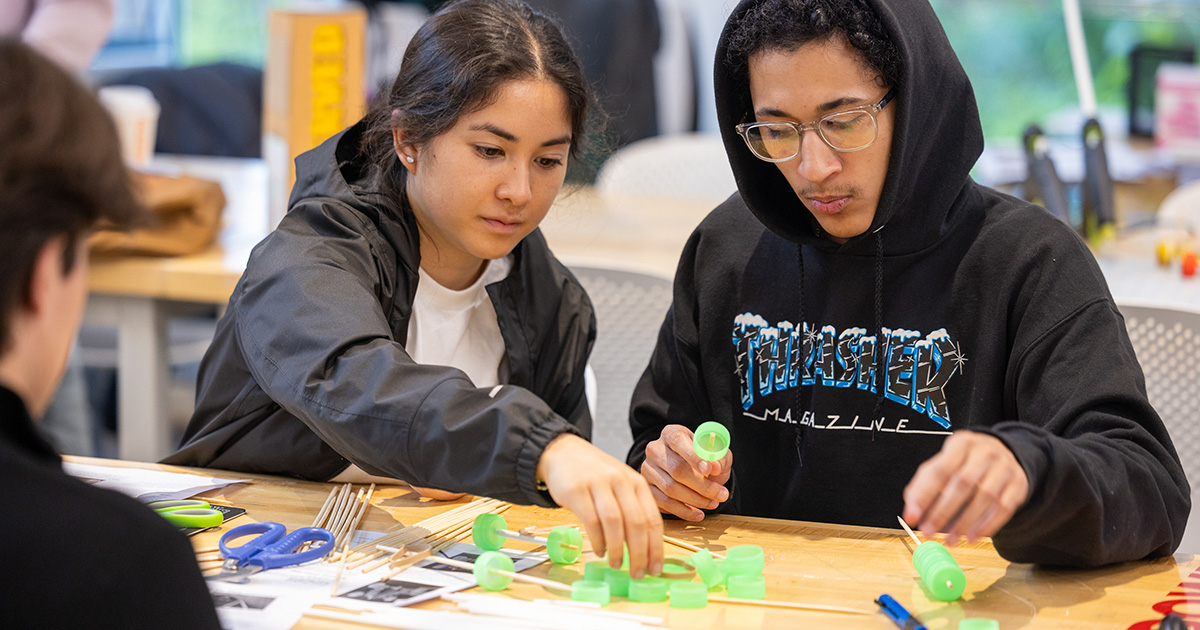Accounting for Entrepreneurship Inside

Entrepreneurship and accounting are rarely, if ever, discussed together in the same sentence. PricewaterhouseCoopers, with more than 180,000 employees spread across 158 countries, is happy to change that perception. With clients all around the world that are themselves changing every single day and an average employee age of 29, quick thinking and adaptability are just as important for the firm as auditing, accounting, and risk management. An entrepreneurial mindset just might be the best tool in PwC’s chest.
Think of these “entrepreneurs inside” as the canary in the corporate coal mine. While entrepreneurship often is considered an arena just for startup founders or venture capitalists, research coming out of the Babson Entrepreneur Experience Lab (Elab) takes a much broader look, delving into the experiences of entrepreneurial individuals at all types of organizations.
“Industries are under the gun now to change faster than ever before, and entrepreneurs inside are often the harbingers of what their organizations need to think about,” says Christine Costello, design director at the Business Innovation Factory, who leads work in the Elab. “These employees have the capacity to assess an organization’s resources and think about how to combine them in new and innovative ways, resulting in high-impact initiatives, new divisions, products, and services, which are great for business.”
Tim Ryan, the Markets, Strategy and Stakeholders leader at PwC, knows firsthand what it’s like to be on the front lines of change. Just three years into his career, Ryan was involved with creating PwC’s Consumer Finance practice. It was the early 1990s and mortgage banking companies and consumer finance companies were becoming an increasingly important part of the economy. Ryan had taught himself about derivatives and had a mentor who encouraged him to learn and take risks, setting him up to help build the practice. “We set a goal to help the top 20 mortgage banking companies in the United States,” he said. “Within a four-year period, we went from literally being off the grid and not even having a practice, to being at the forefront. That gave me a chance to practice entrepreneurship at PwC.”
Equally important is adapting to changing circumstances. Shay Blanchette, a lecturer in accounting at Babson College and former partner at PwC, participated in another one of the firm’s entrepreneurial ventures when she helped build the Private Company Services practice. She recalls the excitement as well as the many challenges of being part of a new venture within an international organization.
“Our team’s expectations changed when our original idea didn’t go as initially planned. We planned something different with this group where individuals would provide both audit and tax services, instead of specializing. But, in practice, people wound up specializing, just as they had before. PwC supported the experimentation process and it was a great learning opportunity.”
That culture of experimentation and support extends all the way to the most junior employees. Jessica Plunkett spent the summer of 2012 as a forensics intern with PwC Advisory, and will join the firm full time after completing a graduate degree in accounting at Babson. “Everyone I met last summer was quick to pass on advice from their past experiences, which helped me learn,” she said. “We were always asking ‘Is there a better way to do this?’ and figuring out the most efficient ways to organize people and get the job done.”
For Blanchette, the ability to be an entrepreneur inside is rooted in participation. “I’m a really big proponent of having a voice and an opinion,” she says. “My classroom is like a lab: I want students to practice accounting, but even more, I want them to develop a voice. In the working world, if you don’t have a voice, people don’t see you as impactful.”
This voice gives entrepreneurs inside precious social capital. In many ways, it’s the corporate parallel to the familiar storyline of startup founders stressing over financial capital. Your reputation, relationships, and network of supporters contribute to your credibility in an organization.
“Social capital provides entrepreneurs inside with the freedom to try new things,” says Costello. “If you don’t have it, it’s going to be hard for you to experiment with something. When developing a new idea, you won’t have the proof points that prove the value of what you’re doing until later in the project. Consistency in your ability to commit, to act, and to follow through is the only currency entrepreneurs inside can trade on at first.” Bottom line: If the organization sees you as someone who can seize an opportunity and manage relationships, there will be more leeway and tolerance for experimentation.
Talking about the Business Innovation Factory research, Costello says, “Our intent was to understand the experiences of entrepreneurs inside many different types of organizations: nonprofits, governments, religion, cooperatives, corporations. … We learned that organizations fundamentally are not entrepreneurial. But people are.” By embracing that mindset, we can finally step outside the conventional view that entrepreneurship only works well in certain contexts.



